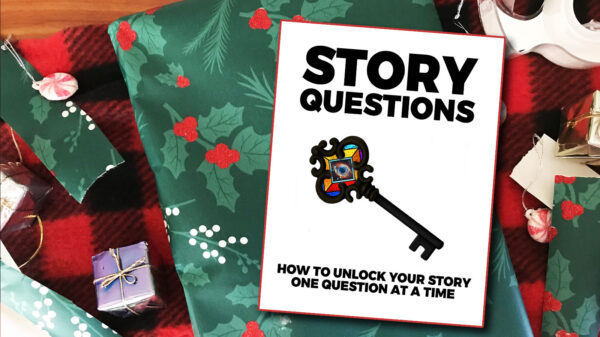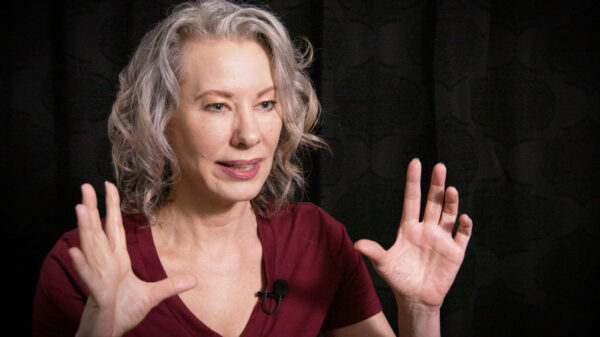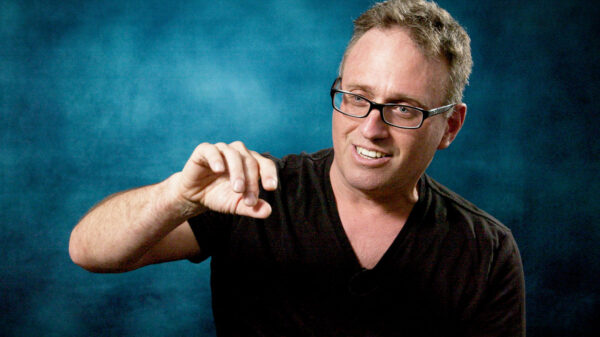CARLYE RUBIN – FILMMAKER
I see my life in chapters. Chapter One: The Beginning; Chapter Three: Childhood; Chapter Five: The girl whose mother died and so on. As my life unfolds and chapters become archives, I’ve begun to see that clichés often have weight; that what made me feel different would ultimately drive me to do something others deemed unrealistic, but that I found necessary.
“So now I, myself, find it ironic that I’ve dedicated the past two years of my life to exploring the subject in such a big way.”
My mother died when I was 11. For the following years, her death was strictly on a need-to-know basis. If the topic was broached, I felt like a cartoon villain after interrogation – they know too much, we must get rid of them. I could sense it coming from miles away and knew how to manipulate the conversation in the other direction; I was the avoider. So now I, myself, find it ironic that I’ve dedicated the past two years of my life to exploring the subject in such a big way.
After countless sleepless nights fixated on an idea, I was introduced to Katie Green, another up-and-coming filmmaker from London who, aside for sharing my obsession with Ondi Timoner, Kate Bush’s Wuthering Heights and documentaries, was also an M.D. (motherless daughter), and with that, a collaboration was formed and another chapter of my life began.

The Club is a documentary film chronicling the stories of four women – a free-spirit, a new mother, an artist, a teenager – who all lost their mothers during adolescence. Some, keenly aware of how this premature loss has affected them, while others are still navigating the role their mother’s absence continues to play in their lives.
In addition to the typical ups and downs partnered with one’s directorial debut, the added obstacle of a 5-hour time difference between Katie and me has made this process that much slower. After nearly two years, countless deep breaths (at skype’s insistence) and several trips back and forth from London to New York (and everywhere in between), we believe we have the chalk outline of a documentary feature. Our lives have consisted of filming logistics and side-jobs, traveling and networking, follow-up emails & treatment revisions. I’ve found myself in numerous humorous situations that have often left me feeling like the frazzled version of myself. With still a ways to go, I’m hesitant to speak on what a long, strange journey it’s been but all the same, here is some of the best advice I was never given:
Lesson Learned One: Put yourself in unconformable situations.
Making a film so deeply personal meant putting myself exactly where I never had the strength to be. I spent over ten years streaming all my efforts into avoiding the fact that my mother died and here I was behind the camera expecting others to do what I never could. Once I was resigned to the fact that my desire and need to make this film outweighed my fear of confronting my past, everything changed. Knowing this film would resonate with audiences was something I couldn’t ignore. It was invigorating to be able to capture these women living their lives. After that first shoot, I felt the part of me that was stunted in growth catch up to my then 24 year-old self.
Lesson Learned Two: I am you and you are me.
Having this experience in common with our subjects has given us a leg up when it came to cultivating relationships with them. There was an unspoken understanding that we’d never ask anything we wouldn’t feel comfortable answering ourselves. It was important to find that commonality with our subjects that enabled a sense of camaraderie, blurring the line between us as filmmakers and the women as subjects. It may not always be as overt as in our case but it’s essential in gaining trust to ensure you get access to the most compelling and honest footage/storylines.
Lesson Learned Three: Shameless Plugs, Networking & hoping you ‘Like’ us.
I hate asking for help so it took me a minute into this collaborative effort to realize we actually needed support; enter the world of crowd-funding. After we tapped out the obvious sources of financing (i.e. family and friends), we emphatically turned to strangers inclined to donate to a fledgling film. Though being fiscally sponsored is, in my humble opinion, integral, particularly in making yourself attractive to both private investors and funding bodies, it didn’t exactly drive as much traffic to the crowd-funding sites we’d previously used. Kickstarter, on the other hand, is a whole other beast. I keep asking myself the same question – how are people finding us? This innovative site requires you to set incentives to drive donations. It’s challenged us to look at this labor of love as a commercial project with genuine reach that is wider than a niche audience. Having launched a campaign just one week ago, we’ve elicited a visceral response only possible through the internet’s take on word of mouth. I’m hardly moving mountains with this revelation, but Facebook is kind of amazing. Not only has it been the source of frequent emails from people who’ve heard about the film and either want to offer help or thanks, but we’ve developed a fan-base by piggybacking off of like-minded groups. In our case, thousands of members belong to groups like ‘Motherless Daughters’ praising author, Hope Edelman for paving the way. As two filmmakers riding on her coattails, we’ve found incredible support from members of such groups who ‘like’ our page and back our campaign. It’s vital to know your audience and how to access them- we intuitively felt that we could prove this wasn’t an issue of a few but rather, many. Loss is universal, an unfortunate effect of life and we believed from inception this film could and would have real impact.

“Sharing your work allows for fresh eyes to give
constructive criticism.”
Lesson Four: If you believe it, they will too.
It’s not every day you reach out to Rosie O’Donnell for an interview. It’s also not every day Rosie O’Donnell responds almost instantly with a yes, no questions asked. Being able to feature Rosie, Molly Shannon and Hope Edelman not only demonstrates the gravitas of the subject matter, but validates what Katie and I believed all along; that our insatiable need to produce this film had merit. Any residual self-doubt I may have had walking into a conversation with a New York Times best-selling author or an SNL alum fell by the waste side when we started talking; their words resonated with me and will with others, regardless of personal ties to the subject matter. Katie and I have stumbled into face-time with a few of our heroes in the documentary world, in large credit to friends we’ve had and made along the way. Just one chance encounter could, and did, refuel our efforts and reroute our tracks. Sharing your work allows for fresh eyes to give constructive criticism.
Here’s what I know for sure: life is short (a cliché with weight), so go with your passion. In making this film, we set out to open up a dialogue that wasn’t happening; to illustrate that women are not subsequently hypochondriacs like Vada Sultenfuss or clueless tomboys like Marla Hooch because they’re motherless, but real, complicated, multi-faceted, 3-dimensional women.
Our Kickstarter campaign has raised just under 5k with $10,000 more to go, and though it’s possible we won’t reach our goal, it’s not possible that this film won’t get made. In the meantime, our eyes are on the prize, as we trust it’s a chapter worth reading.
Please check out the campaign for THE CLUB here.
Carlye Rubin, is a passionate storyteller, producer & researcher,
living in New York. Having collaborated on several feature
documentaries that have received commercial success and critical
acclaim including The Swell Season & Capitalism: A Love Story, ‘The
Club’ will be her directorial debut.
Co-director/producer, Katie Green, is one half of the writing team
behind In Prison My Whole Life, her first venture into film which
would end up being accepted at Sundance Film Festival 2008, as well
London, Rome film festivals and winning best film prize at the Geneva
Human Rights Film Festival. She then went on to co-produce UK feature
documentary Starsuckers’and co-founded Reel Nice Films, before teaming
up with Carlye on their directorial debut to bring you The Club.
Follow THE CLUB DOCUMENTARY on Twitter.
COMING SOON!
























